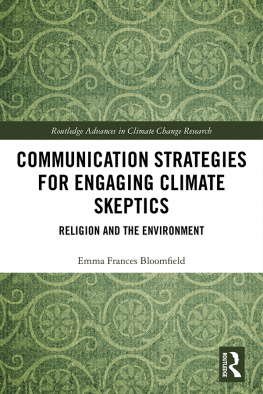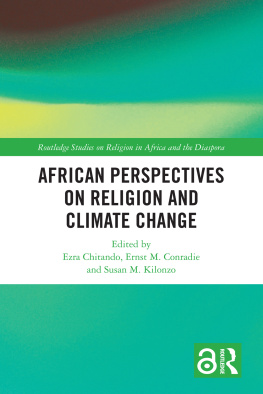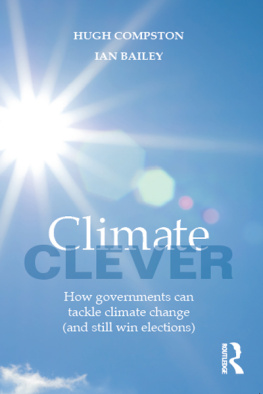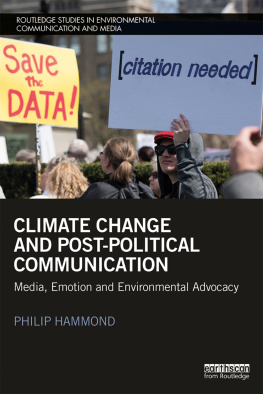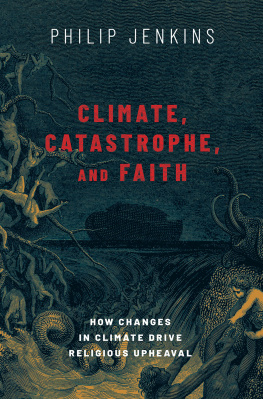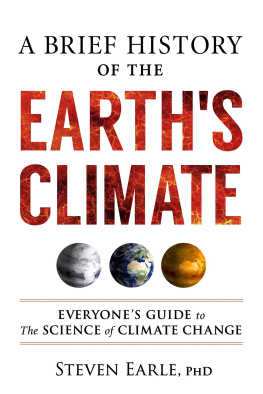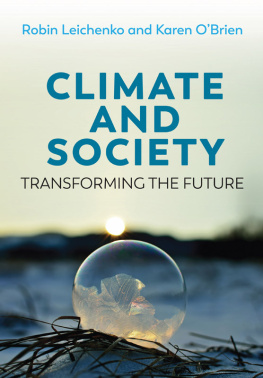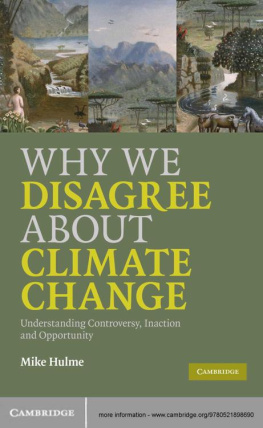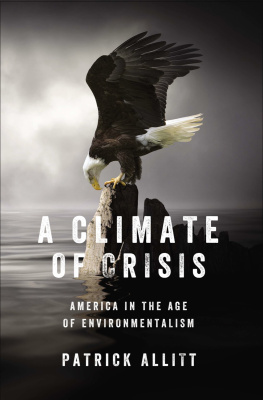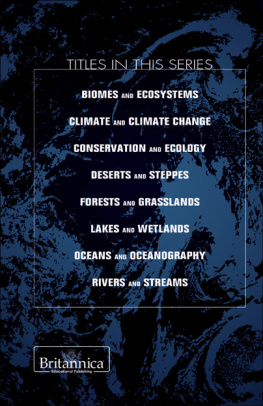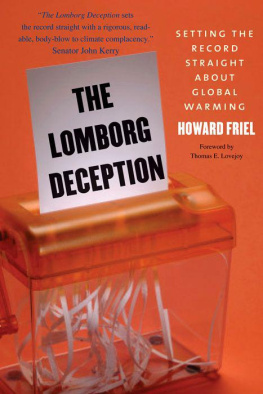Communication Strategies for Engaging Climate Skeptics
Communication Strategies for Engaging Climate Skeptics: Religion and the Environment examines the intersection of climate skepticism and Christianity and proposes strategies for engaging climate skeptics in productive conversations.
Despite the scientifically established threats of climate change, there remains a segment of the American population that is skeptical of the scientific consensus on climate change and the urgent need for action. One of the most important stakeholders and conversants in environmental conversations is the religious community. While existing studies have discussed environmentalism as a factor within the religious community, this book positions religion as an important factor in environmentalism and focuses on how identities play a role in environmental conversation. Rather than thinking of religious skeptics as a single unified group, Emma Frances Bloomfield argues that it is essential to recognize there are different types of skeptics so that we can better tailor our communication strategies to engage with them on issues of the environment and climate change. To do so, this work breaks skeptics down into three main types: separators, bargainers, and harmonizers. The book questions monolithic understandings of climate skepticism and considers how competing narratives such as religion, economics, and politics play a large role in climate communication. Considering recent political moves to remove climate change from official records and withdraw from international environmental agreements, it is imperative now more than ever to offer practical solutions to academics, practitioners, and the public to change the conversation. To address these concerns, this book provides both a theoretical examination of the rhetoric of religious climate skeptics and concrete strategies for engaging the religious community in conversations about the environment.
This book will be of great interest to students, scholars, and practitioners of climate change science, environmental communication, environmental policy, and religion.
Emma Frances Bloomfield is an Assistant Professor in the Department of Communication Studies at the University of Nevada, Las Vegas, USA.
Routledge Advances in Climate Change Research
Climate Justice and the Economy
Social Mobilization, Knowledge and the Political
Edited by Stefan Gaarsmand Jacobsen
A Critical Approach to Climate Change Adaptation
Discourses, Policies and Practices
Edited by Silja Klepp and Libertad Chavez-Rodriguez
Contemplating Climate Change
Mental Models and Human Reasoning
Stephen M. Dark
Climate Change, Moral Panics and Civilization
Amanda Rohloff
Edited by Andr Saramago
Climate Change and Social Inequality
The Health and Social Costs of Global Warming
Merrill Singer
Cities Leading Climate Action
Urban Policy and Planning
Sabrina Dekker
Culture, Space and Climate Change
Vulnerability and Resilience in European Coastal Areas
Thorsten Heimann
Communication Strategies for Engaging Climate Skeptics
Religion and the Environment
Emma Frances Bloomfield
For more information about this series, please visit: www.routledge.com/Routledge-Advances-in-Climate-Change-Research/book-series/RACCR
Communication Strategies for Engaging Climate Skeptics
Religion and the Environment
Emma Frances Bloomfield
First published 2019
by Routledge
2 Park Square, Milton Park, Abingdon, Oxon OX14 4RN
and by Routledge
52 Vanderbilt Avenue, New York, NY 10017
Routledge is an imprint of the Taylor & Francis Group, an informa business
2019 Emma Frances Bloomfield
The right of Emma Frances Bloomfield to be identified as author of this work has been asserted by her in accordance with sections 77 and 78 of the Copyright, Designs and Patents Act 1988.
All rights reserved. No part of this book may be reprinted or reproduced or utilized in any form or by any electronic, mechanical, or other means, now known or hereafter invented, including photocopying and recording, or in any information storage or retrieval system, without permission in writing from the publishers.
Trademark notice: Product or corporate names may be trademarks or registered trademarks, and are used only for identification and explanation without intent to infringe.
British Library Cataloguing-in-Publication Data
A catalogue record for this book is available from the British Library
Library of Congress Cataloging-in-Publication Data
A catalog record has been requested for this book
ISBN: 978-1-138-58593-5 (hbk)
ISBN: 978-0-429-50492-1 (ebk)
Typeset in Times New Roman
by Wearset Ltd, Boldon, Tyne and Wear
Contents
This book stems from my dissertation work at the University of Southern California, so I want to acknowledge all of my peers, colleagues, advisors, and mentors at Annenberg who helped my scholarship come to life. I am especially indebted to my advisor, Randy Lake, for supporting me throughout the conceptualization and writing of this book. From the mountains of Alta, Utah to the castles of Uppsala, Sweden, Randy is a lifelong mentor, colleague, and friend. I am also incredibly thankful to Tom Goodnight, Stephen OLeary, and Tom Hollihan for their mentorship and guidance while I was at USC and beyond. I would also like to thank the support and comradery of my colleagues at UNLV, who keep my spirits and confidence high. Last, but not least, Id like to acknowledge the lifelong support of my amazing family, Mom and Dad, Graeme, Trevor, Molly, and Charley, and my loving husband, Paul. I am who I am and my work is what it is because of the support and love I receive from all of those around me. I want to specifically dedicate this book to my Grandma, Pauline Harry, who was an incredible woman who inspired me and everyone she knew to pursue our dreams.
Artist Adrin Villar Rojass installation, The Theater of Disappearance, features a series of tall, narrow sculptures made up of layers of rock, dirt, fabric, household objects, and debris. As ones gaze moves up the sculptures, Villar Rojass layered towers show the remnants of human influence, such as shoes and technology fading from view. Temporarily housed in the Geffen Contemporary at the Museum of Contemporary Art in Los Angeles from October 2017 to May 2018, these art pieces question the hierarchy of humans controlling the Earth. Over the passage of time, humans themselves will disappear from the geological record despite our current deleterious impact on the environment. The installation portrays humans as but one part of the Earths history and that the Earth will continue long after we will, although the remnants and scars of our presence might remain. Described as post-human artwork (Adrin Villar Rojas: The Theater of Disappearance n.d.: para. 1), Villar Rojass work represents contemporary tensions over the resiliency of the Earth, the interconnectedness of life, and the relationship between humanitys existence and influence in geological time.
Villar Rojass installation debuted at a time of polarization in the United States over climate change and proper environmental policies. Embroiled in environmental discourse are questions about the imbalance between human nature relationships and about how best to negotiate a variety of perspectives about and interpretations of climate science. Some people are highly worried about, others highly skeptical of, and many with feelings in between about what is popularly known as climate change, global warming, and climate disruption (Leiserowitz

